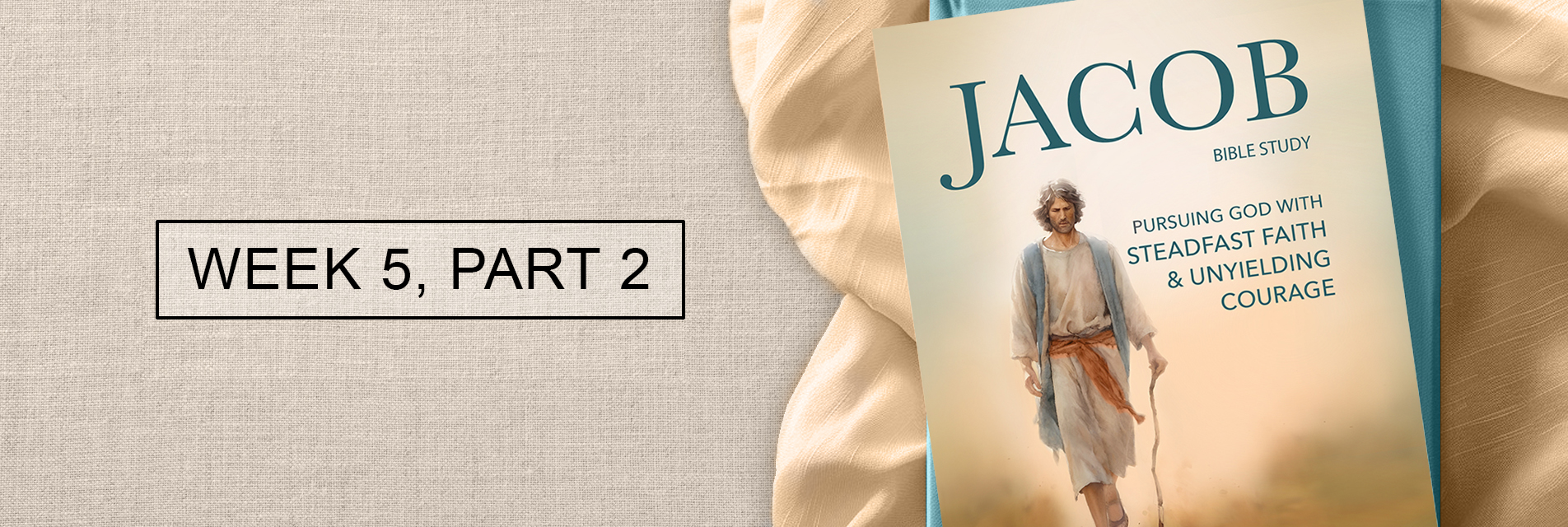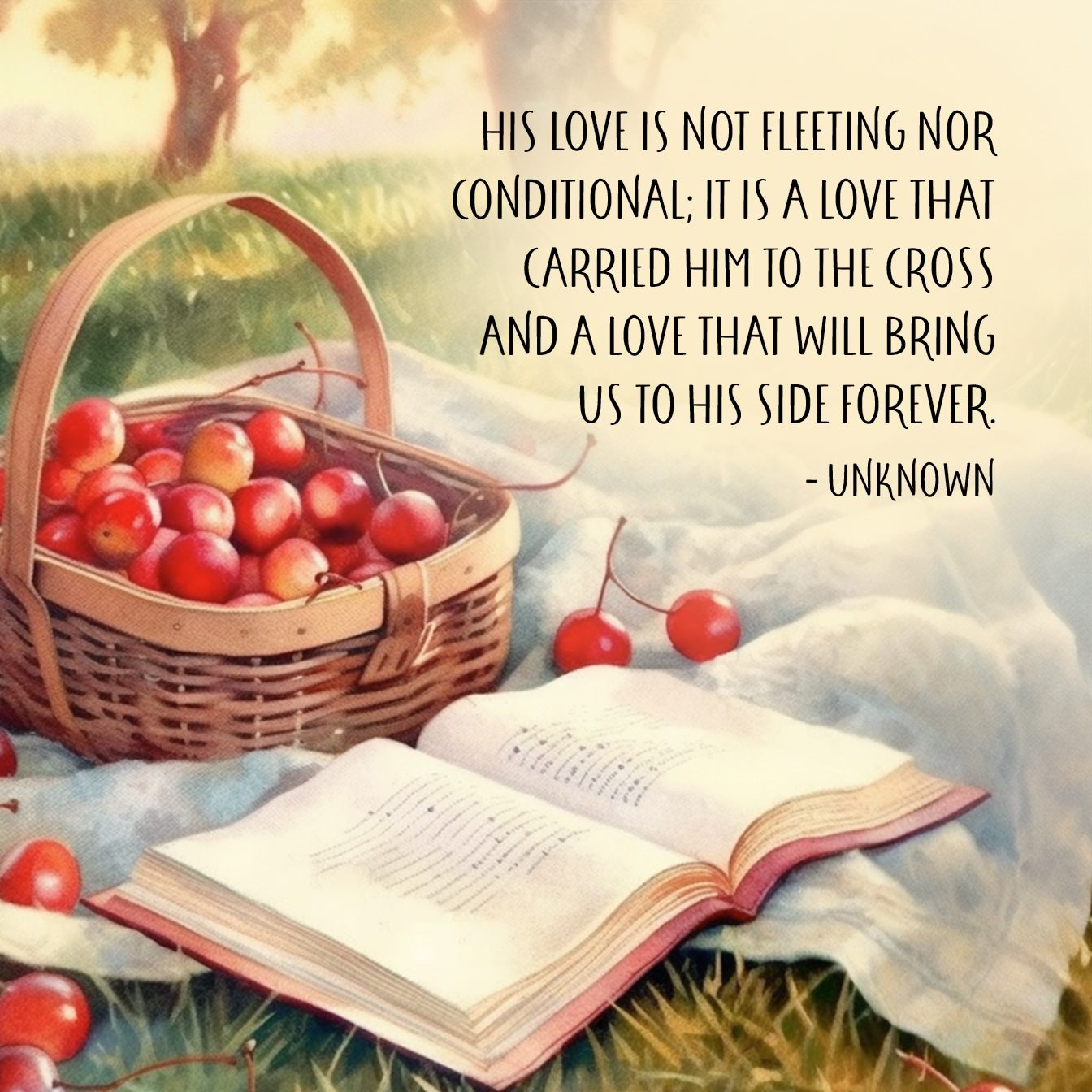

Click here to pick up a copy of the study guide at Amazon.
Looking for other posts in this study? Click here for the table of contents.


MY THOUGHTS ON Genesis 29
This week in our study, I asked this question: “The details in this chapter are similar to the events in Genesis Chapter 24 where Abraham’s servant meets Rebekah. Can you think of another story in the Bible where a future bride is met at the well?”
Most of us pointed out the obvious example of Moses meeting Zipporah at the well. However, one girl in the group, Chastity, offered a unique perspective by pointing to the encounter between Jesus and the Samaritan woman at the well in John Chapter 4. Her outside-the-box approach to the question prompted me to dig a bit deeper into the subject. Inspired by her insight, I turned my Bible to John Chapter 4 to see if there was any connection to our study and, if so, what that connection might be.
Stories like Abraham’s servant finding a bride for Isaac, Jacob meeting Rachel, and Moses meeting Zipporah at a well help us understand the story and characters better by showing both their similarities and differences. So, how similar or different is the story of Jesus and the Samaritan woman? There was a well, but was there a betrothal? Looking back to John Chapter 3, we find something interesting that sets the stage for this story. In verse 29, John the Baptist introduces and acknowledges Jesus as the bridegroom:
“The bride belongs to the bridegroom. The friend who attends the bridegroom waits and listens for him, and is full of joy when he hears the bridegroom’s voice. That joy is mine, and it is now complete.” – John 3:29, NIV
And so, we have a well, and we have a bridegroom, but do we have a bride? Yes, we do! In John Chapter 4, the Samaritan woman represents more than just an individual; she symbolizes the church, the collective bride of Christ. Jesus’ conversation with her signifies His reaching out to all people, offering them living water and inviting them into a relationship with Him. This encounter foreshadows the union between Christ and His church, highlighting His role as the bridegroom and His followers as His bride.
Now, here’s another interesting comparison. Notice how in each of the betrothal stories the women run home to tell their families:
- After giving water to Abraham’s servant and his camels, Rebekah runs back home to tell her family about the stranger and his message.
- After Jacob meets Rachel at the well and helps her water her father’s sheep, Rachel runs back to tell her father, Laban.
- After Moses helps Zipporah and her sisters by driving away the shepherds and watering their flock, the girls return home and tell their father, Reuel (also known as Jethro).
In John 4:28-30, we read: “Then, leaving her water jar, the woman went back to the town and said to the people, ‘Come, see a man who told me everything I ever did. Could this be the Messiah?’ They came out of the town and made their way toward him.”
While the women in the betrothal stories of the Old Testament brought their families together with the men they had met, the Samaritan woman brings other believers to Christ, who, like the families we read about in the Old Testament, urge Him to stay with them.
“Many of the Samaritans from that town believed in him because of the woman’s testimony, ‘He told me everything I ever did.’ So when the Samaritans came to him, they urged him to stay with them, and he stayed two days.” – John 4:39-40, NIV
When we see Jesus in this role as a bridegroom, we gain a deeper understanding of His intimate and sacrificial love for the church, reflecting the profound, personal relationship He desires with each one of us. Likewise, the roles of the brides in these stories remind us of our calling to share the gospel and bring others to Christ. Just as Rebekah, Rachel, and Zipporah ran home to share the news of their encounters, the Samaritan woman went to her town, testified about Jesus, and brought them back to meet Him. This highlights the importance of our testimony in leading others to the bridegroom and inviting Him to stay.
“For your Maker is your husband— the LORD Almighty is his name— the Holy One of Israel is your Redeemer; he is called the God of all the earth.” Isaiah 54:5, NIV

This Week’s Printable
Here is this week’s printable. Click the image to view and print a higher resolution.


When you purchase a copy of the study guide, you’re actively supporting and strengthening our ministry as we spread the empowering message of the gospel to women across the globe!


We understand that not everyone can purchase the study guide, which is why we provide a printable version exclusively for those facing financial constraints. By subscribing below, you’ll unlock access to these downloadable materials. As part of our community, you’ll have the opportunity to explore the content at your own pace. Plus, as an added treat, you’ll receive periodic devotions from Time-Warp Wife, delivered directly to your inbox. Together, we can grow in faith and discover the abundant blessings of our shared journey. Join us in spreading the empowering message of the gospel to women all around the world.

Hi! I’m so glad you’re here. Life can be tough, and sometimes we all need a bit of guidance and encouragement. That’s the heart behind Time-Warp Wife – a special place where women can find practical advice and spiritual nourishment whenever they need it.
Whether you’re feeling lost, struggling in your relationships, or just looking for some inspiration, I’m here for you. Through my Bible studies and devotions, I’m dedicated to helping women like you grow closer to God and cultivate fulfilling, God-centered relationships.
Take a look around, and don’t hesitate to reach out if you have any questions or need someone to pray for you. Together, let’s strengthen our faith and discover the joy that can only be found in Christ.
You are loved by an almighty God,
Darlene Schacht
The Time-Warp Wife



0 Comments